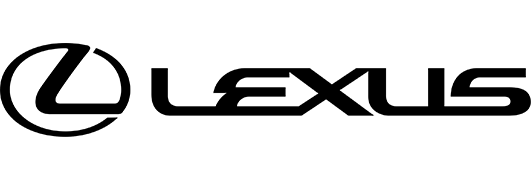Buying a car for your business: Pros & Cons

Do your employees travel a lot for business? Perhaps you need to find the right company car for your employees who visit clients off-site on a regular basis. If so, you might be wondering what are the pros and cons of the different payment plans available on the market? You might also wonder what the benefits are for buying through your company.
-
Why buy a car under your business’ name?
Occasionally people will simply use their private car and claim the mileage back from the company. If you are one of these companies, you might wonder why you would buy a car through your business instead of going down this route.
Using your personal car is one thing, but what about your health professionals, your sales teams, your engineers and many more professionals who travel for the benefit of your company? Not all employees are happy to use their personal car, and although the mileage is claimed back, the upkeep and cleanliness of the vehicle isn’t.
Having a business-owned car will benefit your employees as well as offer flexibility to the business. On top of making a good impression to your clients, this will include things like advertisement if you wish to have graphics or sign writing on the vehicle, keeping a professional appearance with personal belongings kept out of view alongside the vehicle being clean and well maintained.
It will also remove any paperwork headaches that come with repaying your employees for the mileage they have covered in their own vehicle, as opposed to a business car where you can be certain that all decisions are under your control and name.
-
Core Considerations
CO2 emissions:
Depending on the car model and its CO2 emissions, you might pay tax. Nowadays, businesses turn towards hybrid or fully electric to cut down any excesses of taxes or additional fees that combustion engine cars come with.Tax:
>> Business electric cars in the UK currently have a tax rebate, making it more appealing to most businesses who can afford or accommodate this type of car.
>> Consider how your accountant would categorise your car purchase. For example, when buying through hire purchase (HP), some accountants will regard the purchase as having been paid in full, which could impact your cashflow.Insurance:
Depending on how you fund the vehicle, some dealerships might offer the insurance included in the monthly payment. Otherwise, you will have to consider a business vehicle insurance.Renewal:
Consider the renewal of your car. Would it be cost effective in the long run to keep the vehicle or replace it once the mileage or age exceeds your limit. -
Buying a vehicle outright – Full Ownership
If your budget allows, you can purchase a vehicle outright. The vehicle will be seen as a fixed asset which owned by your business.
Pros
-
The car is yours to keep, and you’ll be the proud owner of a brand-new shiny car!
-
You avoid paying a potential interest rate which you might incur with leasing or finance options, potentially saving you money in the long term.
-
You are not fixed into any contract meaning you can decide to sell at any point.
Cons
-
Purchasing vehicles outright will affect the cash flow of your business and it is not certain that you will be able to recover the full cost of the vehicle if you decide to sell it.
-
-
Hire Purchase (HP) – Full ownership once the last payment has been made
Hire Purchase (HP) is when you agree to a fixed monthly cost with a finance company over a period where at the end of the contract the vehicle will be fully paid for, and you will have full ownership. This is one of the most popular types of payment methods of vehicles in the UK.
Pros
-
Buying with HP will free up your cash flow as you will have a lower monthly reoccurring cost.
-
Once the amount is fully repaid you will have full ownership of the vehicle.
-
The interest rate will be fixed throughout the term of the contract.
Cons
-
You will need to pay interest rates, meaning that there is an additional cost on top of the vehicle price.
-
You will have full ownership once the payments have been made, so if you decide to sell the vehicle the chances of you recovering the full amount spent is unlikely.
-
-
Personal Contract Purchase (PCP) – Monthly payments with the choice of ownership
This option allows you to have a low monthly outgoing cost with the option to have full ownership at the end of the contract or to hand back the vehicle.
Pros
-
Flexibility at the end of the agreement on what you would like to do with the car.
-
You’ll pay a fixed monthly payment over the course of the contract that is typically lower than monthly payments for a HP vehicle.
Cons
-
If the returned vehicle does go back, it needs to be in a good condition and within the agreed mileage.
-
You must keep in mind the balloon payment/final payment if you wish to keep the vehicle.
-
-
Leasing a vehicle
This option allows you to avoid cashflow issues and could even give you access to more expensive car. The contract usually includes specified length of hire and a maximum mileage count.
Pros
-
The vehicle will be treated as an asset on your balance sheet, meaning tax allowances can be deducted from taxable profit.
-
Some brands may offer insurance in your monthly cost.
-
You always have an up-to-date fleet of vehicles.
-
Some brands offer a fully maintained option which is the upkeep of the vehicle is included within the monthly cost to use the vehicle, which helps to avoid any unexpected costs.
Cons
-
You will never have ownership of the vehicle.
-
Any damage on the vehicle will have to be paid for.
-
There will be a charge per mile for exceeding your mileage agreed.
-
-
All in all
When it comes to acquiring a vehicle for your business, it’s clear there are multiple options to consider. The real question is, which option is best for you? There are a multitude of factors to consider, from cashflow and interest rates to tax allowances and recuperating costs at the end of the term.
You should ensure to consider the pros and cons carefully in the context of your business needs, circumstances, and capabilities. At SLM, we can help you understand the differences between each option and guide you to the best solution for your business and employees.



